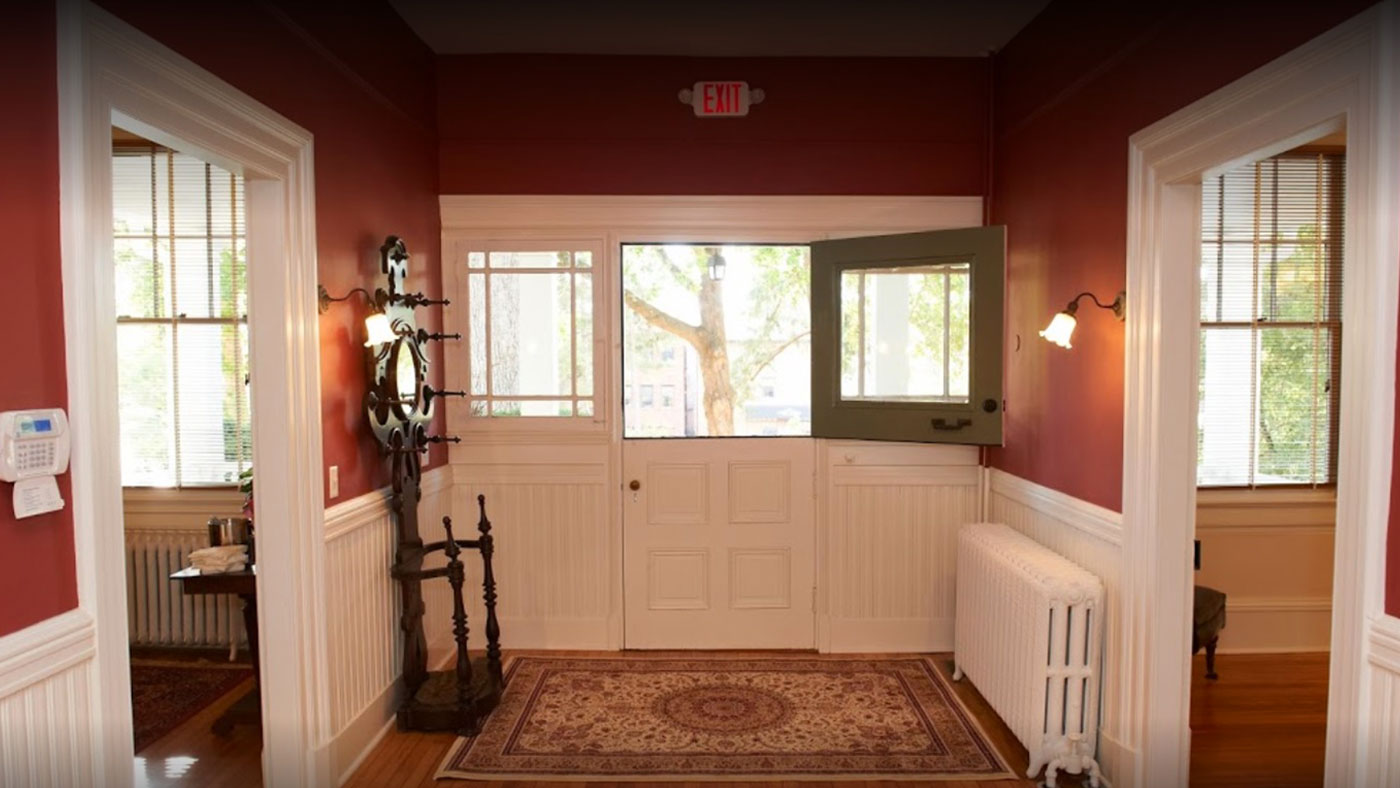No Results Found
The page you requested could not be found. Try refining your search, or use the navigation above to locate the post.

We would like to take a moment during this Coronavirus public health emergency to reiterate that the well-being of our clients and potential clients is, and has always been, the focus of Brian Elston Law. As a private, client-centric personal injury firm, we regularly make ourselves available through phone calls, in-person meetings, emails, and even text messages. Due to our specialized size, we can be there for each of our clients.
Our clients can trust that we are here for them, even amidst the recent Covid-19 concerns. We do not anticipate any disruption in service. We will be, however, taking extra precautions for in-person meetings. As our office is private with already limited foot traffic, we believe that we can still offer in person meetings with extra precautions in place.
We will be doing our part as members of the community by limiting social interactions to an as-needed basis. We will continue our “in-person by appointment” only policy. Prior to scheduling the appointment, we will verify that the in-person meeting is necessary, the individual is well enough to attend and has not been exposed to any illnesses, the rooms and door knobs are wiped down, hands are sanitize and that a “warm hello” will take the place of a handshake. For potential clients, we will do what we have always done: carefully review their matter prior to scheduling p an in person meeting. We’ve always protected our clients, and we will continue to do so in this challenging time.
For more information on what to do to protect yourself, the CDC’s guidance can be found here. Symptoms for COVID-19 are found here. For information on our private setting, see here.
Thank you for your cooperation and support.





I was reading the newspaper the other day and read about a school bus crash involving a local high school volley ball team that occurred in McDowell County, North Carolina. Of course, our thoughts and prayers go out to the students, faculty, families and friends of those hurt by the school bus accident and hope that everyone is ok. Sadly, in our experience as school bus accident lawyers, school bus accidents happen frequently for a variety of reasons: mechanical problems with the school bus; the school bus driver’s negligence; or the negligence by a third party.
If it is determined that the school board’s employee(s) was responsible for the accident, the school board can be sued.
LET’S TALK.
828.575.9700
School Bus Accidents are different than other motor vehicle accidents because of the tort claims act
As former school board attorneys and now attorneys for the injured, both Brian and I have a considerable amount of experience as school bus accident lawyers, on both sides of the coin, when it comes to litigation involving school bus accidents. Check out “Our Results” on our webpage for more information about a recent Brian Elston Law case involving a school bus accident.
If it is determined that the school board’s employee(s) was responsible for the accident, the school board can be sued. In a previous blog regarding school board law, I wrote that in most negligence cases, a school board is entitled to governmental immunity and is immune from damages in a negligence lawsuit. This general principle of governmental immunity, however, does not apply in the context of school bus accidents. In this context, the Board of Education has waived its immunity up to one million dollars because the claim is covered under the North Carolina Tort Claims Act and there is a specific statute dealing with school bus negligence claims. The one million dollars applies in the aggregate (meaning, there is up one million dollars to settle all related claims for all parties involving that specific accident). In normal lawsuits against a Board of Education, the lawsuit must be filed in district/superior court in the county where the school system is located. In school bus accident cases, however, the claim against the Board of Education must be filed in, and adjudicated by, the North Carolina Industrial Commission.
In addition to filing a lawsuit against the School Board in the North Carolina Industrial Commission, at the same time, it is also possible to file a lawsuit against the Board of Education’s employee, in his/her personal capacity, in district/superior court. First, personal capacity claims are not subject to the North Carolina Tort Claims Act and are not subject to governmental immunity. Second, as I noted in a previous blog regarding school teachers, the State of North Carolina has provided professional liability insurance for public school employees who are sued in their personal capacities. This insurance is secondary; meaning, that this insurance will only kick-in after the first one million dollars has been paid by the Board of Education; however, in a school bus accident case that could likely involved several injured students, it is highly likely that this insurance could be triggered.
It is important to make sure that if your child or you are involved in a school bus accident case, you have knowledgeable and experienced attorneys who understanding the multiple layers and parties and can maximize the potential claim.

(cont) Meet more of the band from Topic No. 002
Lost wages, future lost wages, and future medical treatment are like back up vocals. They complete the song and make it resonate. Lost wages are usually determined by a letter, affidavit, or some other documentation from the injured’s employer. In regards to future medical treatment, that is established by the client’s treating physician or through a life care plan.
Our office works with an injured’s employer in establishing lost wages. Generally speaking, that is not too difficult.
Obtaining a medical opinion by a treating physician can be a bit more difficult. However, our office has established relationships with medical providers. Whether it is from a phone conference, opinion letter, or a life-care plan, Brian Elston Law will nail down future treatment to be sure a client’s song is complete.
In motor vehicle accidents, jurors equate the more extensive the property damage to a vehicle with the significance of an injury. A jury will more likely believe that a client is injured when seeing a picture of a vehicle crushed like a Coke can, than when there is a fender bender.
Brian Elston Law obtains photos of not only our client’s property damage, but also the other vehicle in a motor vehicle accident. In addition, we obtain records from our client’s out-of-pocket expenses for car rentals, Ubers, or simply paying a friend to use their car while theirs is in the shop.
Pain and suffering how the accident happened, punitive damages:
Each successful band has it. The “it” factor. A client’s personal injury claim is no different:
How has the client’s life changed because of the injury and accident? What did he or she used to do then that they can’t do now? What do you wish they could do but can’t? How did the accident happen? Who is the person that caused the accident? What were they doing when the accident happened?
Our firm digs in to quantify how the accident changed our client’s lives. In addition, we not only likes to successfully resolve our client’s injuries, but also make sure that no one else goes through what they did. Brian Elston Law substantiates the impact our clients go through, and find out what caused the accident to make sure it doesn’t happen to anyone else.
More importantly, the song must resonate with the claims adjuster or a juror. The attorneys at Brian Elston Law work with each client to put together each component. In doing so, they hope to rock the adjuster or jury in providing each client with the maximum amount of justice.

Someone injured in an accident because of someone’s negligence has the right to know what they can expect in terms of justice. The individual’s life has likely been turned upside
down, so they want to know, what can they expect?
I get it. I’ve resolved countless motor vehicle accident, personal injury and workers’ compensation cases. Each case has some of the same components, but their values are different. Think of it like music bands. Most bands are playing the same instruments, but the Dave Matthews Band is a lot different than Weezer.
Each personal injury claim is generally comprised of the same components in determining its value.
All bands are known for their front man, and each case is about who the client is. A mentor of mine once said that Exhibit 1 is the client.
Who the client is, where are they from, their professional (and even criminal) background, work experience, family support, and medical history are all significant in evaluating a claim. How will the client appear in front of a jury?
As a personal injury attorney, we work to put the best foot forward for our client. In settlement discussions, we usually send a picture of the client so the claims adjuster is aware that they are a “face, not just a case.” In preparing for depositions, we meet with our clients several times to prepare them.
Medical treatment in a claim is like a guitar solo in a Led Zepplin song. It’s got to have one and it should be continuous.
There is a correlation between medical treatment and a case’s value. The insurance adjuster’s processes and systems all factor in the amount of medical treatment, and, with some exception like a wrongful death case, they equate more medical treatment with the severity of the injury. Moreover, a juror will value a surgery higher than an office visit.
As stated above, the medical treatment has to be continuous like a solo. Lapses in treatment without explanation impact the value of a claim.
In evaluating a client’s claim, our firm collects all medical records associated with the accident, which can be no easy task. One trip to the emergency department usually generates four separate records by the ambulance, hospital, radiologist, and emergency room physician. We review each record, dissect them for recording accuracy, summarize, and compile them for the insurance adjuster. Our job is to help explain the extent of medical treatment and causation.
I know the bass player in the band Bush. At his wedding, a bandmate of his said that no one ever misses the bass, until its not there. At a concert in Germany, the bass player inadvertently spun around and in doing so, kicked the connection between the bass and the amp. Apparently, everyone knew that the song was missing something.
Like the bass, insurance adjusters want to know the amount of the medical expenses. The adjuster knows that this is the amount that they are responsible for if they are found liable and there is causation. So, they want to know what they are looking at.
As I addressed in a prior blog post, a claims value is not based on a multiplier of the medical expenses. However, they are an anchor.
Brian Elston Law contacts not only the medical providers in order to determine their bills, but also health insurance companies to determine what, if any, amounts were paid to satisfy the bills. Brian Elston Law is able to assist in resolving your personal injury claim.
More on the band and its roles & beats in part two of this personal injury claim Band Part ll – stay tuned for Topic 003 !
– Brian

Brian Elston Law specializes in settlement negotiations with claims adjusters. Our attorneys have resolved hundreds of personal injury claims and recovered millions of dollars on behalf of their clients.
It was sixth grade and, for the first time, there was going to be a school dance. I was looking forward to it, but was feeling nervous and intimidated. Yes, I could “Jump” to Kriss-Kross, but that was the extent of it. So, I listened to music, watched MTV (they played music back then), and tried to practice in front of the mirror. My older, and much, much cooler sister heard what was going on. I showed her my moves, and despite the fact that she could have absolutely destroyed my confidence, gave me a couple of pointers and expanded the repertoire by adding some moves (e.g. Roger Rabbit and Running Man). When I went to the dance, wearing my best sweater, I was able to break it down to all the songs and had a great night.
If you never done it before, engaging in direct settlement negotiations with a claims adjuster can be as intimidating as a sixth-grader going to their first dance. You’ve probably (and hopefully) never had to settle a personal injury claim, so you aren’t sure of what moves to make, the tone of the conversation, and what to do.
In my first blog post, I’m going to lay down the beat about settlement negotiations with a claims adjuster.
The most important thing about dancing, and engaging in settlement negotiations, is to know the individual across from you. Settling a personal injury claim is a process, and you should get to know the claims adjuster. Are they a “just the facts ma’am” or are they chatty? Have they been a claims adjuster since the dawn of time or is this a new career? Do they have compassion fatigue or are they sympathetic? More importantly, how do you interact with each different personality type? You don’t want to step on your partner’s shoes when negotiating, so you’ve got to know their style.
Jonathan Farrington wrote a great article on negotiating with the four personality types, the Director, he Socializer, the Supporter, and the Clinician.
As a personal injury attorney, fortunately, we get to work with many of the same claims adjusters. I know what they need and don’t need in order to evaluate a claim. I know if they prefer email or telephone. More importantly, I’ve built a relationship with them, so there’s a level of trust already in place.
I think that when people hear “settlement negotiation” they think of on-the-spot come-backs, boileroom pressure, and yelling in a phone until you get what you want. No. Settlement negotiations are a process and you’ve got to prepare from the beginning.
For instance, you’ve got to look at all the factors that comprise the value of your claim. You’ve got to compile medical records, bills, and even asking medical providers if there is any future treatment you may need.
Long gone are the days of just asking for 2 or 3 times medical bills. Using that approach today is like doing the Macarena to the new Post Malone. The claims adjuster will know you are out of style and know they have the upper hand.
In order to evaluate a claim, I’ll spend hours going over medical bills, records, opinions, lost wages, reviewing the accident report, property damage claim, and any other document relevant to the claim. Then, before even speaking with the adjuster, I’ll collect my thoughts and figure out my approach. I want to be sure that my moves are on-point and am prepared.
When you have all your claim documents, figured out your strategy and approach, then it’s time to negotiate. Negotiating should not take place while grocery shopping at Ingles, when you have a car full of kids, or when you just wake up. You should be in a place where you have a clear phone connection, documents in front of you, and mentally and physically ready to negotiate. In other words, you should be the one to let the beat drop.
In one particular case, an adjuster called a client first thing in the morning and soon after the accident. Still groggy and on pain-meds, the client agreed to the adjuster’s offer. He came to see me afterwards. I was able to increase the offer based on some things that were not considered, but the deal had essentially been made.
If a claims adjuster calls you, and you are not ready to discuss the claim, schedule a time to call them back. You can decide when to let the beat drop.
As a personal injury attorney, I will schedule a call, set up a voluntary mediation, or even catch up with the other attorney over coffee to discuss. In each scenario, I want to be sure that I am ready and not caught off guard.
Just like a middle-school dance, engaging with settlement negotiations with a claims adjuster for the first time can be nerve-wracking, intimidating, and awkward. In order for settlement negotiations to go smoothly, you’ve got to know the claims adjuster, prepare for negotiations, and resolve the matter at the right time.
Fortunately, engaging in settlement discussions with claims adjuster is not the first dance for the attorneys at Brian Elston Law. Our attorneys have resolved hundreds of claims and recovered millions of dollars on behalf of their clients. Our attorneys know when and how to negotiate to provide each client with maximum justice, and minimum stress.When it’s time for the big dance, Brian Elston Law is able to assist in resolving your personal injury claim. – Brian
The page you requested could not be found. Try refining your search, or use the navigation above to locate the post.